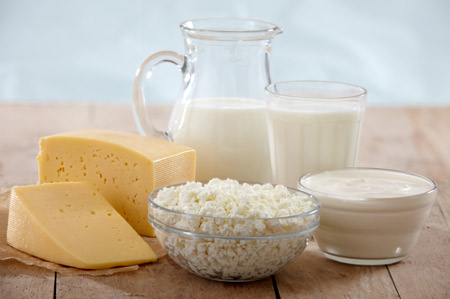California dairymen say CDFA price hike falls short
Category: Dairy
 (Capital Press) – A decision late last week by California Food and Agriculture Secretary Karen Ross to increase the average price paid to milk producers by 12.5 cents per hundredweight of milk falls far short of what producers say they need.
(Capital Press) – A decision late last week by California Food and Agriculture Secretary Karen Ross to increase the average price paid to milk producers by 12.5 cents per hundredweight of milk falls far short of what producers say they need.
“It’s very, very frustrating,” said Michael Marsh, CEO of Western United Dairymen.
The decision follows a May 20 hearing on the issue, called by Ross at the request of the chairman and vice chairman of the California Assembly Ag Committee. The adjustments are effective July 1 through the end of the year.
Producers proposed adding a temporary $1.25 surcharge to the price of Class 4b, milk used to manufacture cheese, and making no changes to minimum pricing for the other classes, milk that is bottled or used for soft dairy products, butter, and powder.
The problem with California’s milk pricing is with 4b, where there is a huge disparity between California’s price and the price for Class III milk to manufacture cheese in federal milk marketing orders, he said.
“We need to resolve that issue. Unfortunately, the secretary essentially kicked the (4b) can down the road,” he said.
He said Ross didn’t come close to the relief producers were looking for on the 4b price and increased prices across all classes, even though there’s no disparity between the price of milk in other classes and those in federal orders.
She also disregarded processors’ unified proposal to reinstate the temporary adjustment she put in place after a December hearing. Those adjustments increased the pooled price to producers by about 25 cents per hundredweight of milk from Feb 1 to May 31.
Dairymen still face a tough situation, and the secretary could have helped them out but didn’t, Marsh said.
California’s industry lost 387 dairy farms between 2008 and 2012 and 25 percent of the state’s dairy farms in the last five years, he said.
“You have to wonder how many of those dairy farms would be open today if we had an equitable price for milk going into cheese,” he said.
The price of 4b milk has been disconnected from the market since 2007, with the 4b price lagging the Class III price by almost $2 per hundredweight since 2011. Most of that discrepancy is tied to the value of dry whey, with California’s value capped at 75 cents per hundredweight, he said.
While processors advocated extending the price increases resulting from the last hearing, the Dairy Institute of California, which represents processors, can’t argue with the secretary’s reasoning for more modest increases, said Bill Schiek, an economist with the Institute.
“It makes sense given the economic factors she has to consider,” he said.
Data at the hearing showed milk prices and producer revenue have risen and milk production has recovered since the December hearing, he said.
The insignificant price relief for milk going into cheese, the unwarranted increase in prices for other classes and the secretary’s letter to the industry accompanying her decision illustrate the secretary’s challenges in understanding how milk pricing works, Marsh said.
After the December hearing, the secretary raised prices for all classes, which put the price of milk going into butter and powder above the level in federal orders. California butter and powder manufacturers lost sales and inventories built, he said.
The decision to increase minimum prices again will exacerbate that problem, making it challenging for co-ops to move those products into the market, he said.
The hearing panel, which makes recommendations to the secretary, recommended no price increases, but Ross decided to increase minimum prices due to the uncertainty of this year’s corn crop and the stability of market recovery, she said in the letter.
“I’ve taken this action despite the fact that I believe, and have stated, the department cannot address ongoing difficulties within the dairy industry through increases in the minimum price,” she said.




